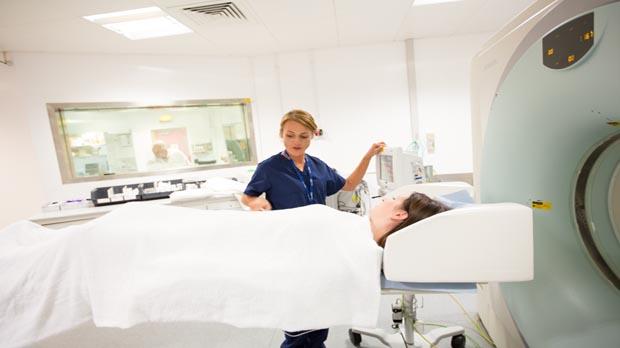
Around 1 in 5 people diagnosed with cancer in the UK take part in a clinical trial.
Please note - this trial is no longer recruiting patients. We hope to add results when they are available.
This trial will compare the standard treatment of chemotherapy and radiotherapy with chemotherapy followed by surgery for women with cancer of the cervix (cervical cancer).
Doctors treat cervical cancer with surgery, radiotherapy or chemotherapy. The treatment you have depends on a number of factors including the stage of your cancer. Many patients with early stage cervical cancer have chemotherapy and radiotherapy at the same time (chemoradiation).
It is possible that having chemotherapy before surgery may be useful for treating cervical cancer. This is called  . The aim is for the chemotherapy to shrink the cancer, making the operation easier and more successful. But doctors are not sure yet how well this treatment will work for cervical cancer.
. The aim is for the chemotherapy to shrink the cancer, making the operation easier and more successful. But doctors are not sure yet how well this treatment will work for cervical cancer.
In this trial, one group of patients will have chemotherapy and then surgery. The other will have chemotherapy and radiotherapy at the same time. The aim is to find out which treatment works best for cervical cancer.
You can enter this trial if you
You cannot enter this trial if you
This is a randomised trial. It will recruit 625 patients into 2 groups. The people taking part are put into treatment groups by a computer. Neither you nor your doctor will be able to decide which group you are in.
Group 1 will have chemotherapy and then surgery. Group 2 will have chemotherapy and radiotherapy together.
If you are in group 1, you will have cisplatin through a drip into a vein either once every week, every 10 days, every 2 weeks or every 3 weeks. Your doctor will decide which regime is best for you.
After chemotherapy the doctors will see if you are able to have surgery. If you are, you will have an operation to remove your cancer (a radical hysterectomy) within 6 weeks of your last cycle of chemotherapy. You may go on to have more chemotherapy after your operation, but this will depend on the results of the operation.
If you are in group 2, you will have cisplatin through a drip into a vein once a week for up to 6 weeks. At the same time you will have external radiotherapy once a day, Monday to Friday, for 5 weeks. On the days that you have both treatments, you have radiotherapy within 8 hours of your chemotherapy. After you finish these treatments, you will have one extra dose of radiotherapy (a ‘booster dose’). The booster dose will either be either external or internal radiotherapy (brachytherapy).
You will fill out a questionnaire before you start treatment, part way through, and at various times after you finish treatment. It will ask you how you have been feeling and about any side effects you have. This is called a Quality of Life questionnaire.
You will have some tests before you take part in the trial. They include
Depending on your individual situation you may also have an
 )
)If you are in group 1, you will go to the hospital for chemotherapy for about 9 weeks before your operation. You will have surgery about 6 weeks later. You may also go to the hospital for chemotherapy after your operation. You will have blood tests before each cycle of chemotherapy. And a CT or MRI scan 2 to 5 weeks after your last dose.
If you are in group 2, you will go to the hospital every day (Monday to Friday) for 5 weeks for external radiotherapy. You will have chemotherapy once a week for up to 6 weeks at the same time. After that you will have one extra dose of radiotherapy. You will have blood tests every 3 weeks during chemotherapy and radiotherapy. And a CT or MRI scan 4 to 8 weeks after you finish treatment.
After your treatment you will see the trial doctors every 3 months for a year, every 6 months for another 4 years, and every year after that. You will have a physical examination at each visit. You will have a CT or MRI scan and a chest X-ray once a year for 5 years.
The most common side effects of cisplatin are
The most common side effects of radiotherapy for cervical cancer are
There is more information about cisplatin and radiotherapy for cervical cancer on CancerHelp UK.
Please note: In order to join a trial you will need to discuss it with your doctor, unless otherwise specified.
Prof Nick Reed
European Organisation for Research and Treatment of Cancer (EORTC)
Experimental Cancer Medicine Centre (ECMC)
NIHR Clinical Research Network: Cancer
If you have questions about the trial please contact our cancer information nurses
Freephone 0808 800 4040

Around 1 in 5 people diagnosed with cancer in the UK take part in a clinical trial.